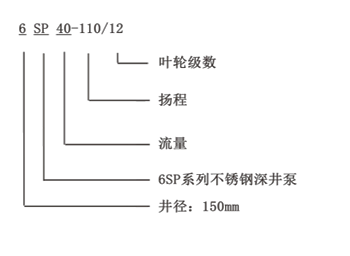Sep . 14, 2024 19:39 Back to list
submersible wastewater pumps
Submersible Wastewater Pumps Essential Tools for Efficient Waste Management
Submersible wastewater pumps are critical components in the management of sewage and wastewater systems. Designed to operate underwater, these pumps are utilized in a variety of applications, including residential, commercial, and industrial settings. Their unique construction enables them to handle the movement of wastewater efficiently, minimizing the risk of blockages and ensuring the proper flow of fluids.
One of the primary advantages of submersible wastewater pumps is their ability to perform in challenging environments where traditional pumps may not operate effectively. By being submerged in the fluid they are pumping, they eliminate the need for complex suction lines, reducing the risk of airlocks and making installation simpler. This feature is particularly beneficial for wastewater treatment facilities, where space can be limited, and the risks of flooding or overflow must be managed carefully.
Submersible pumps are typically constructed from durable materials such as stainless steel and high-grade plastics, allowing them to resist corrosion and wear from harsh wastewater. Additionally, they are designed with sealed motors to prevent water intrusion, ensuring longevity and reliability even in demanding conditions. This durability makes them an excellent choice for applications that require continuous operation, such as in sewage lift stations and stormwater management systems.
submersible wastewater pumps

The versatility of submersible wastewater pumps extends to their operational capabilities. These pumps are capable of handling not only clear water but also fluids containing solids, trash, and other debris, making them ideal for transporting wastewater from treatment plants to disposal sites. Depending on the model, submersible pumps can handle solids of varying sizes, further enhancing their functionality.
Moreover, advancements in technology have led to the development of submersible pumps with integrated control systems. These smart pumps can monitor operational parameters, detect blockages, and adjust their performance to maintain optimal flow rates. Such innovations increase the efficiency of wastewater management systems and help operators respond promptly to any operational issues that may arise.
Energy efficiency is another critical factor in the selection of wastewater pumps. Modern submersible pumps are designed to use less energy while still providing powerful performance. By reducing operational costs and minimizing their environmental impact, these pumps align with the growing emphasis on sustainable practices in waste management.
In conclusion, submersible wastewater pumps are indispensable tools in efficient wastewater management. Their durability, versatility, and advanced technology make them suitable for a wide range of applications, from residential sewage systems to large-scale industrial operations. As the demand for effective waste management solutions continues to grow, the importance of submersible pumps will only increase, making them a worthy investment for any facility aiming to optimize its wastewater handling processes. Whether dealing with stormwater, sewage, or industrial effluents, submersible wastewater pumps stand out as reliable solutions that ensure the efficient and safe management of vital water resources.
-
Submersible Water Pump: The Efficient 'Power Pioneer' of the Underwater World
NewsJul.01,2025
-
Submersible Pond Pump: The Hidden Guardian of Water Landscape Ecology
NewsJul.01,2025
-
Stainless Well Pump: A Reliable and Durable Pumping Main Force
NewsJul.01,2025
-
Stainless Steel Submersible Pump: An Efficient and Versatile Tool for Underwater Operations
NewsJul.01,2025
-
Deep Well Submersible Pump: An Efficient 'Sucker' of Groundwater Sources
NewsJul.01,2025
-
Deep Water Well Pump: An Efficient 'Sucker' of Groundwater Sources
NewsJul.01,2025
-
 Submersible Water Pump: The Efficient 'Power Pioneer' of the Underwater WorldIn the field of hydraulic equipment, the Submersible Water Pump has become the core equipment for underwater operations and water resource transportation due to its unique design and excellent performance.Detail
Submersible Water Pump: The Efficient 'Power Pioneer' of the Underwater WorldIn the field of hydraulic equipment, the Submersible Water Pump has become the core equipment for underwater operations and water resource transportation due to its unique design and excellent performance.Detail -
 Submersible Pond Pump: The Hidden Guardian of Water Landscape EcologyIn courtyard landscapes, ecological ponds, and even small-scale water conservancy projects, there is a silent yet indispensable equipment - the Submersible Pond Pump.Detail
Submersible Pond Pump: The Hidden Guardian of Water Landscape EcologyIn courtyard landscapes, ecological ponds, and even small-scale water conservancy projects, there is a silent yet indispensable equipment - the Submersible Pond Pump.Detail -
 Stainless Well Pump: A Reliable and Durable Pumping Main ForceIn the field of water resource transportation, Stainless Well Pump has become the core equipment for various pumping scenarios with its excellent performance and reliable quality.Detail
Stainless Well Pump: A Reliable and Durable Pumping Main ForceIn the field of water resource transportation, Stainless Well Pump has become the core equipment for various pumping scenarios with its excellent performance and reliable quality.Detail
